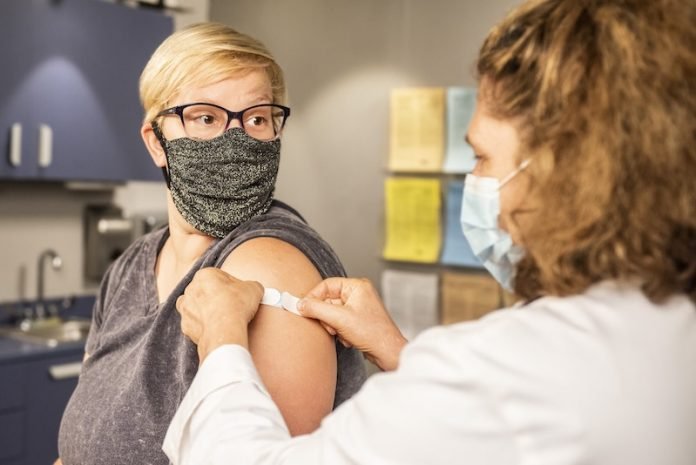
The omicron variant of SARS-CoV-2 is spreading at an alarming rate. It could soon replace the delta variant, which at present dominates globally.
However, little is known about whether currently available vaccines and drugs will be effective against the omicron variant.
In a new study from the German Primate Center, researchers examined how efficiently the omicron variant is neutralized by antibodies from recovered and vaccinated people.
They found antibodies from recovered people hardly inhibit the omicron variant.
The team was able to show Antibodies after two BioNTech-Pfizer vaccinations also showed significantly reduced efficacy against the omicron variant.
Better inhibition was observed after triple BioNTech-Pfizer vaccination as well as after heterologous vaccination with Oxford-AstraZeneca and BioNTech-Pfizer.
Finally, most of the therapeutic antibodies evaluated in the study were not effective against the omicron variant.
Currently, combinations of the antibodies Casirivimab and Imdevimab, and Etesevimab and Bamlanivimab are used to treat COVID-19.
However, the team showed that these antibodies are largely ineffective against the omicron spike. Only one antibody, Sotrovimab, inhibited the omicron spike.
The team says that most antibodies currently available for COVID-19 therapy will be ineffective against omicron.
Sotrovimab is an exception and could become an important treatment option for omicron-infected patients.
These results suggest that several antibodies used to treat COVID-19 will be ineffective against the omicron variant.
However, they also suggest that a third immunization with the BioNTech-Pfizer vaccine (booster) and heterologous immunization may protect well against the omicron variant.
If you care about COVID, please read studies about vitamin D that can be cheap treatments for COVID-19, and when will I need my COVID vaccine booster shot.
For more information about health, please see recent studies about aspirin, anti-inflammatory drugs that may prevent COVID-19 deaths, and results showing that Omicron may not be the final variant, but it may be the final variant of concern.
The study is published in Cell. One author of the study is Stefan Pöhlmann.
Copyright © 2021 Knowridge Science Report. All rights reserved.



